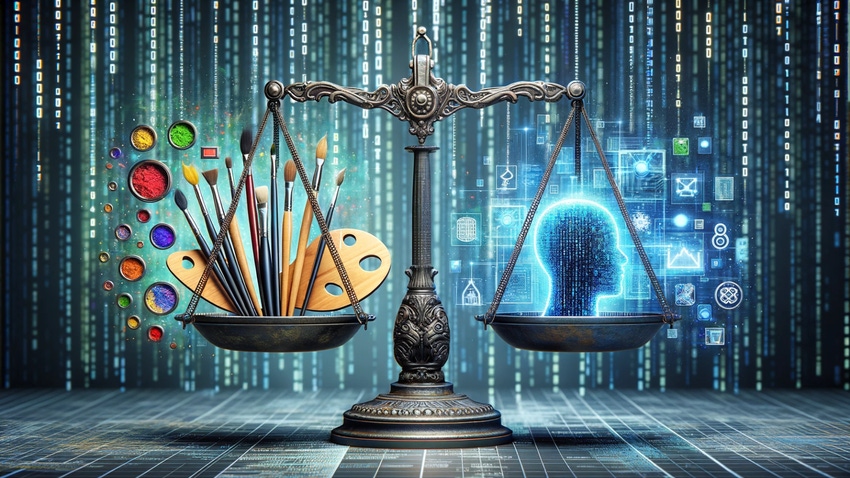Stability AI Wins Partial Legal Victory Over Infringement Claims
Stable Diffusion parent is off the hook as artists failed to register IP rights - but judge allows refiling of the case

At a Glance
- U.S. district judge dismisses copyright claims against Stability AI, Midjourney and DeviantArt.
- Two of the three artist plaintiffs did not register their works with the U.S. Copyright Office, negating their claims.
- Judge will let the artists refile the case, with some claims remaining intact.
Stability AI, the parent of Stable Diffusion, and Midjourney – two of the most popular image generation models − won a partial legal victory over claims their AI training practices infringed on the copyrighted works of three artists.
A U.S. district court dismissed parts of the lawsuit, which also includes defendant DeviantArt, an online art community with an image generator called DreamUp, on a technicality. Two of the plaintiffs, illustrator Kelly McKernan and concept artist Karla Ortiz, did not register their images with the U.S. Copyright Office, which negates the infringement claim.
But the Northern California district court kept alive the claim of cartoonist Sarah Andersen. The three had sued Stability AI in January, claiming that Stable Diffusion is alleged to have used their art to generate new images − essentially copying the original works.
It is not over, however. District Judge William Orrick permitted the other artists to file an amended complaint against Midjourney and DeviantArt. The two used open-source Stable Diffusion to power their services. Stability AI allegedly paid another organization to train Stable Diffusion, downloading “billions of copyrighted images” without permission.
“Even Stability recognizes that determination of the truth of these allegations – whether copying in violation of the Copyright Act occurred in the context of training Stable Diffusion or occurs when Stable Diffusion is run – cannot be resolved at this juncture," Judge Orrick ruled.
The case has “out of court settlement’ written all over it,” according to Andres Guadamuz, senior lecturer in intellectual property law at the University of Sussex, on his Technollama blog.
Guadamuz said if no compromise is reached, the suit “could last for years as any result will likely be appealed.”
AI Business has contacted Stability, Midjourney and DeviantArt for comment.
Expect more AI IP lawsuits
The legal battle embroiling Stability and others is part of a growing number of cases involving intellectual property and AI.
Models like ChatGPT and Stable Diffusion require vast amounts of training data to learn from to generate outputs. Some developers use web crawlers to trawl websites for data. OpenAI, the maker of ChatGPT, has GPTBot, which sifts the internet in search of data to power its AI models.
More recently, web crawlers let website owners block access to their sites. But these features were not in place when the lawsuit was filed.
The infringement claims extend to literature, with some of the biggest names in fiction taking issue with OpenAI and others for allegedly copying entire books without permission.
Authors including George R. R. Martin, John Grisham and Margaret Atwood filed a lawsuit in late September alleging OpenAI copied their works. That case is still ongoing. The Authors Guild, which represents literary writers, also has pending class action lawsuits against Meta and Google.
Read more about:
ChatGPT / Generative AIAbout the Author(s)
You May Also Like


.jpg?width=700&auto=webp&quality=80&disable=upscale)
.jpg?width=700&auto=webp&quality=80&disable=upscale)
.jpg?width=700&auto=webp&quality=80&disable=upscale)
.jpg?width=300&auto=webp&quality=80&disable=upscale)

.jpg?width=300&auto=webp&quality=80&disable=upscale)
.jpg?width=300&auto=webp&quality=80&disable=upscale)
.jpg?width=300&auto=webp&quality=80&disable=upscale)